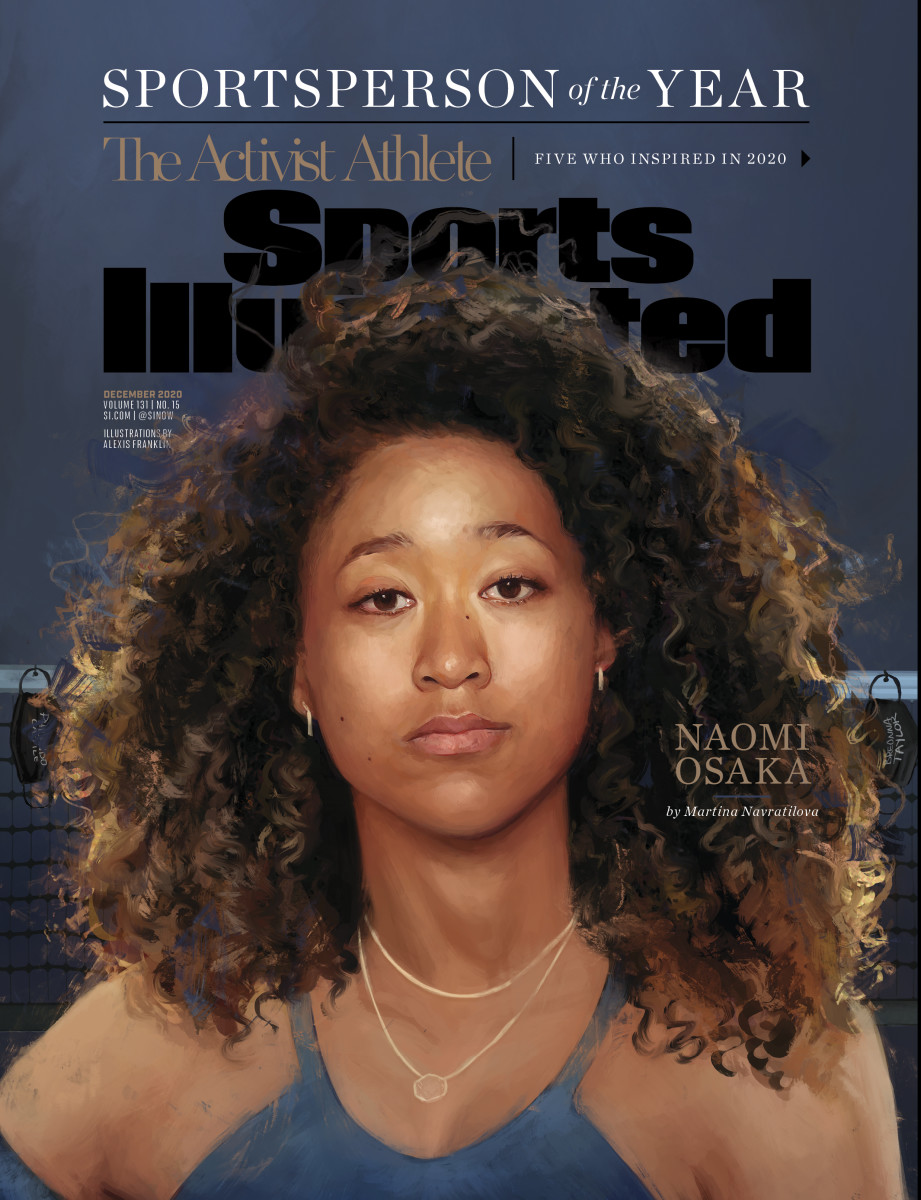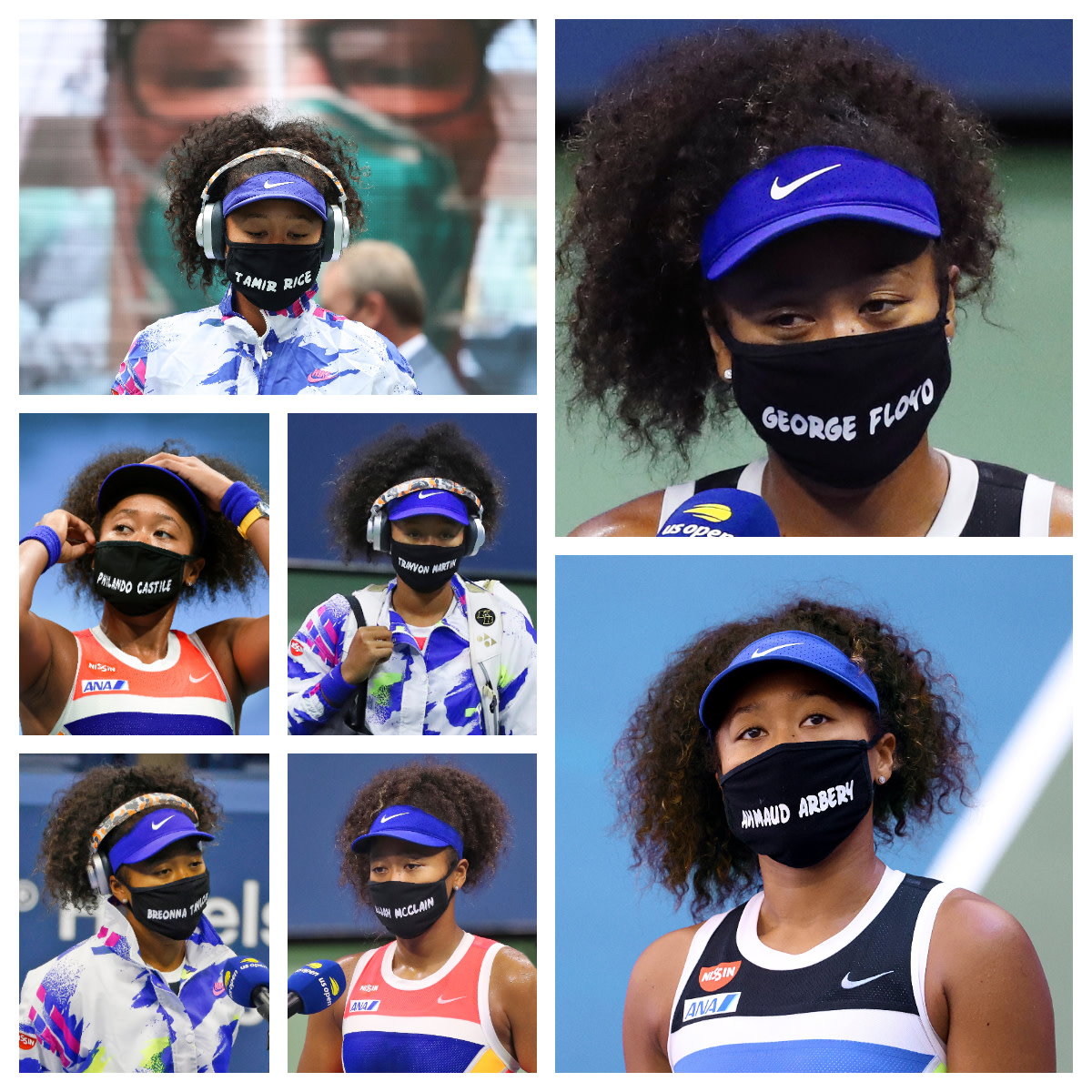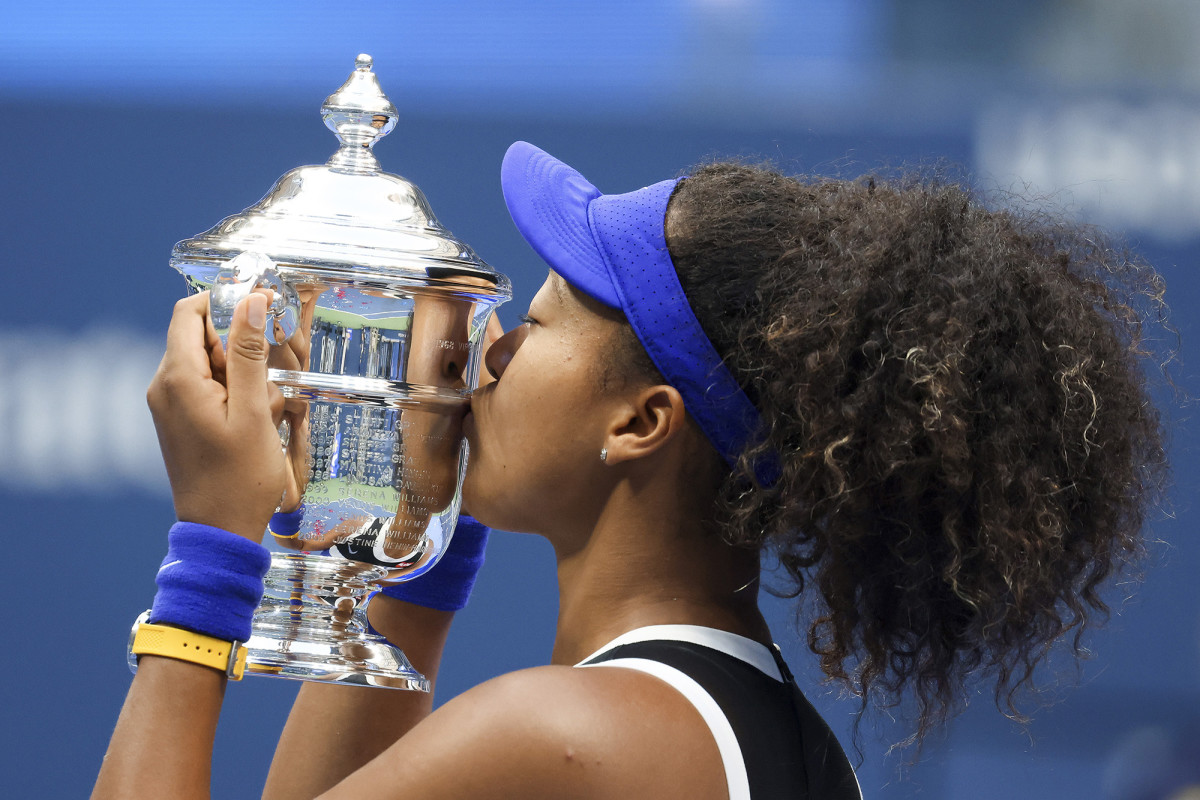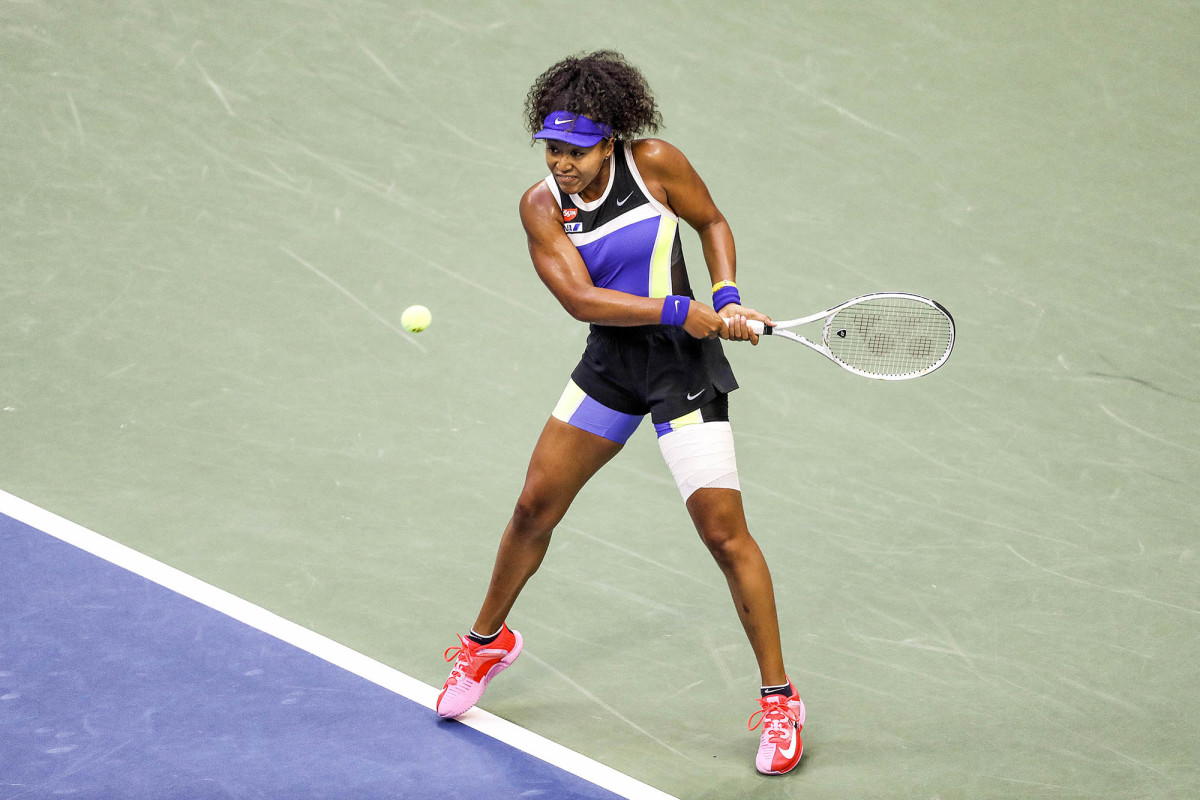Meet Your 2020 Sportsperson of the Year Winners: Naomi Osaka
Naomi Osaka didn’t want to become a star. She didn’t ask for all the fame and adulation that have come her way.
I get the feeling that she would rather walk the streets totally unrecognized.
At a time when it seems that almost everyone in this world wants to be famous, whether they have a talent or not, there’s something very sweet and refreshing about Naomi, who certainly has a talent, but no need to be famous. She just wants to play ball. At 23, Naomi has become a force on the tennis court, winning the U.S. Open in September for the second time, coming back from a set down to beat Victoria Azarenka.

But in 2020 she also became a huge force off the court. Naomi came to understand the power of fame and learned how to use it for the greater good. How cool is that? She used her platform to raise awareness of violence against Black Americans by the police and others and to foster the conversation about how to combat it.
By wearing seven masks at the U.S. Open— with a new one for every round, each honor ing a different Black victim of police violence or a racist attack—Naomi made an extremely powerful statement. Every time she walked out to play people were talking about which name was going to be on the mask. Breonna Taylor. Elijah McClain. Ahmaud Arbery. Trayvon Martin. George Floyd. Philando Castile. Tamir Rice.

On her own, she brought so much attention to their stories. Naomi’s not someone you can dismiss as just a liberal whatever. This wasn’t political. She was humanizing the enormous problem of police violence against Black people in America. This was about fairness. This was about human rights.
A few months before the U.S. Open, Naomi went to Minneapolis and visited the exact spot where George Floyd was killed to see and absorb and feel that herself. On the biggest stage in tennis, she would wear a mask with his name. Some critics thought Naomi was cocky for bringing seven masks to New York City—that assumed she would reach the finals, right?—but she had won the title before, along with another major, the Australian Open, in 2019. I thought the idea was brilliantly thought through and executed.
I’ve been listening to Michelle Obama’s audiobook and I can see the similarities between the former First Lady and Naomi, who has a Japanese mother and a Haitian father. Neither of them chose to become global figures, but the reluctant stars have both realized that they have the power to inspire people and bring attention to important causes.

Believe it or not, I’m an introvert like Naomi. When I was on the tour I was terrified of public speaking. All I wanted was to play tennis. Naomi is the same. But this year I’ve seen her find her voice, just as I found mine. Much of what you get asked as an athlete is banal. What’s your favorite TV show? Your favorite music? Even, what’s your favorite color? But here was an opportunity, as Naomi saw it, to use her fame and her voice to address something so much more important than winning a tennis tournament. When you’re as introverted as Naomi is, you’re usually not comfortable talking about yourself; sometimes it’s better to talk about other people or other issues. And I think that’s what she has discovered.
***
Just days before the U.S. Open, Naomi did something that I thought was heroic. O.K., she wasn’t putting her life on the line, but her decision to withdraw from the semifinal of the Cincinnati tournament, in protest of the shooting of Jacob Blake and what she called “racial injustice and continued police violence,” showed she was willing to risk her preparation for New York. She recognized that what was happening in the U.S. was bigger than her, and that this was the best way to highlight that issue.
And where Naomi led, tennis followed—all the matches were paused for the day. This thoughtful gesture made a big splash, and her desire to speak up, and to raise awareness, carried through to the U.S. Open.
When you know you’re doing the right thing, that gives you more confidence in all the other parts of your life. I really think the masks gave Naomi extra energy that propelled her through the tournament. They also helped to take the pressure off a little bit. Why should I be worried about whether I win my next match or not when people are dying on the streets of America because they’re Black?
The first time Naomi won the U.S. Open, against Serena Williams in 2018, she had to deal with the booing of the crowd. The second time, in the middle of a pandemic, she played to an empty Arthur Ashe Stadium. Maybe one day she will win the championship with a full house cheering for her. That she could play such great tennis when there was no one in the stands was an illustration of her inner strength and character and how she just gets on with it.

Like other star athletes today, Naomi has her own bullhorn, with her Twitter and Instagram accounts. She can tell her stories and talk about what matters to her without anybody policing or censoring her words. She gets to speak out. She sets the agenda. I wish I had had a platform that is just so powerful and empowering 30 years ago. On social media, you have full control over your message, and that makes a big difference. Naomi is using her voice in such a positive way.
I’ve seen from Naomi’s tweets and posts that she magnifies the issues she cares about. She’s using that bullhorn—the bullhorn that she never asked for—very wisely.
But it was Naomi’s actions offline, with her protest in Cincinnati and her seven masks in New York, that had the biggest impact. I hope that she has kept all those masks, because one day they ought to go on display in a museum.
